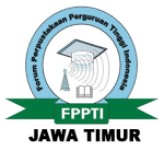Metamorphosis of Archivists in The Era of Industry 4.0: Challenges in Facing the Digital Revolution
Downloads
Background of the study:Development of information and communication technology (ICT)
Purpose: This research analyzes that using Internet technology of things (IOT), for example in managing large archive-based computing can help archivists to master the technology used in the Industry 4.0.
Method: The author uses the method of hermeneutics Ricoeur (Hermeneutics Phenomenology). Hermeneutics method that seeks to bring interpreters at a better understanding of themselves through the activity of which is known as an appropriation. In this hermeneutic, activity is not a dichotomy between the subjective dimension of the subject and the object objectivity.
Activities interpret these methodological least cover four categories, namely: objectivation through the structure, distances through writing, distances through the world of the text, and appropriation (or sense of self).
Findings:As archivists need to consider the possibility that our jobs become more technical and complex if it wants to stay in the Industry 4.0. As an experienced in archival work, the author himself is still difficult to imagine what it might be like if the archival work associated with the field of biotechnology and nanotechnology as the convergence of these two areas are the development of the field of archives is not too obvious. However, considering that ICT is still the main technology, the authors will be focused in this area just by paying attention to the ongoing trend in this field in relation to archiving.
Conclusion: The constancy of this profession will depend on his response to the growing challenges of the digital world and the adaptation of professionalism does.
Downloads
Bailey, Steve. (2007). Taking the Road Less Traveled By: The Future of the Archive and Records Management Profession in the Digital Age. Journal of the Society of Archivists, 28 (2), 117-124.
Bearman, David. (1995). Electronic Evidence: Strategies for Managing Records in Contemporary Organizations. Archival Issues, 20 (2), 169-170.
Browne, Ryan. (2017). Elon Musk says Global Race for AI will be the Most likely cause of World War III. CNBC, 4 September 2017.https://www.cnbc.com/2017/09/04/elon-musk-says-global-race-for-ai-will-be-most-likely-cause-of-ww3.html,Accessed 05:09. 17.
Bushey, J., Demoulin, M., & McLelland, R. (2015). Cloud Service Contracts: An Issue of Trust. Canadian Journal of Information and Library Science, 39, 128-153.
Cellan-Jones, Rory. (2014). Stephen Hawking warns Artificial Intelligence could End Mankind ". BBC, 2 December, 2014.http://www.bbc.com/news/technology-30290540, Accessed 8:08:17.
Cheng, Eric CK (2018). Managing Records and Archives in a Hong Kong School: A Case Study.
Coeckelbergh, Mark. (2010). Health Care, Capabilities, and AI Assistive Technologies. Ethical Theory and Moral Practice, 13 (2), 181-190.
. (2013). E-care as Craftsmanship: Virtuous Work, Skilled Engagement, and Information Technology in Health Care. Medicine, Health Care and Philosophy, 16 (4), 807-816.
Davies, John. (2013). Big Data and Records Management. Information Today Europe, 13 June, 2013.https://www.infotoday.eu/Articles/Editorial/Featured-Articles/Big-Data-and-Records-Management-90229.aspx, Accessed 8:10:18.
Douglas, Robertson. (2017). This is How Facebook's Shut-down AI Robots Developed Reviews their own Language and why it's more Common than You Think ". Independent, 1 August 2017.http://www.independent.co.uk/voices/facebook-shuts-down-robots-ai-artificial-intelligence-develop-own-language-common-a7871341.html Accessed 2:08:17.
Floridi, Luciano. (2013). The Ethics of Information. Oxford: Oxford University Press.
. (2014). The Fourth Revolution: How the InfoSphere is Reshaping Human Reality. Oxford: Oxford University Press.
. . (2019). What the Near Future of Artificial Intelligence Could Be. Philosophy and Technology, 32 (1), 1-15.
Floridi, Luciano et al. (2018). AI4People - An Ethical Framework for a Good Society: Opportunities, Risks, Principles, and Recommendations.Minds and Machines, 28 (4), 689-707.
Frincke, Deborah A., Ford, Richard. (Ed). (2011). Cloud Computing: A Records and Information Management Perspective. The IEEE Computer and Reliability Socities, November / December, 63-66.
Haralampus, Lisa. (2017). Big Data Issues for Federal Records Managers. ARMA Metro Conference, April 26, 2017.http://www.arma-metromd.org/save-the-date-april-26-2017-records-management-in-a-big-data-era/ Accessed 4:10:18.
High-Level Expert Group on Artificial Intelligence. (2018). Ethics Draft Guidelines for Trusworthy AI. Brussels: European Commission.
Humm, Bernhard G., Walsh, Paul. (2015). Flexible yet Efficient Management of Electronic Health Records. International Conference on Computational Science and Computational Intelligence, Las Vegas, NV, USA, 12 July to 12 September, 2015.
Maday, Charlotte; Moysan, Magalie. (2014). Records Management for Scientific Data. Archives and Manuscripts, 42 (2), 190-192.
McKinnon, Cheryl. (2013). 5 Trends are Reshaping Records Management. KM World.http://www.kmworld.com/Articles/Editorial/Features/5-trends-are-reshaping-records-management-92683.aspx, Accessed 1:10:18.
Pence, Harry E. (2015). What is Big Data: Why is It Important ?. Journal of Educational Technology Systems, 43 (2), 159-171.
Richards, Lorraine L. (2018). Records Management in the Cloud: from System Design to Resource Ownership. Journal of the Association for Information Science and Technology, 69 (2), 281-289.
Rolan, Gregory et al. (2018). More Human than Human? Artificial Intelligence in the Archive. Archives and Manuscripts, 1-25.
Schwab, K. (2016). The Fourth Industrial Revolution: What It Means, How to Respond. World Economic Forum. https://www.weforum.org/agenda/2016/01/the-fourth-industrial-revolution-what-it-means-and-how-to-respond/. Accessed 2:10:18.
Much Storage Capacity Gigabyte, Terabyte and Petabyte ?. BagiTekno, May 26, 2018.https://www.bagitekno.net/hardware/seberapa-besar-kapasitas-penyimpanan-gigabyte-terabyte-dan-petabyte.html Accessed 6:10:18.
Shivali. (2017). Genetically-modified Superhuman Soldiers of the Future will feel no pain or Fear and be more 'Destrutive than Nuclear Bombs', warns Vladimir Putin. Mail Online, 23 October 2017. http://www.dailymail.co.uk/sciencetech/article-5008461/Vladimir-Putin-warns-super-human-soldiers-future.html Accessed 31/10/17.
Smit, Frans. (2013). The Metamorphosis of Records Manager. https://www.academia.edu/31755131/The_metamorphosis_of_the_records_manager Accessed 2:10:18.
This Hot Robot Says She wants to Destory Humans. CNBC, 16 March, 2016. https://www.cnbc.com/video/2016/03/16/this-hot-robot-says-she-wants-to-destroy-humans.html Accessed 8:08:17.
Weisberger, Mindy. (2017). Lifelike 'Sophia' Robot Granted Citizenship to Saudi Arabia. Live Science, 30 October 2017. https://www.livescience.com/60815-saudi-arabia-citizen-robot.html Accessed 31/10/17.
Record and Library Journal by Unair is licensed under a Creative Commons Attribution-ShareAlike 4.0 International License.
1. The journal allows the author to hold the copyright of the article without restrictions.
2. The journal allows the author(s) to retain publishing rights without restrictions
3. The legal formal aspect of journal publication accessibility refers to Creative Commons Attribution Share-Alike (CC BY-SA).
4. The Creative Commons Attribution Share-Alike (CC BY-SA) license allows re-distribution and re-use of a licensed work on the conditions that the creator is appropriately credited and that any derivative work is made available under "the same, similar or a compatible license”. Other than the conditions mentioned above, the editorial board is not responsible for copyright violation.



 57201398420
57201398420

























